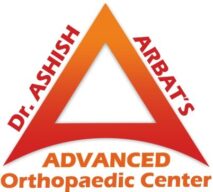
Mobility restrictions make living with avascular necrosis disease challenging. If blood supply to bone tissue is stopped, avascular necrosis (AVN) causes bone crumbling & collapse. It affects any joint but is most common in the hip.
Breaking bones, dislocating hips, radiation therapy, & alcohol abuse can cause avascular necrosis, which requires surgery or joint replacement to relieve pain & enhance mobility. However, patients with AVN can prevent further bone loss through various surgical & non-surgical treatments. The AVN treatment aims to prevent additional bone loss. Continue reading to learn in detail…
Contents
What is Avascular Necrosis?
Avascular Necrosis is a disease that causes cellular death in the hip area, leading to bone collapse. Although rarely life-threatening, it is debilitating & most typically affects the hip in adults aged 30 to 50. AVN develops in stages:
- The first-stage AVN causes hip pain & X-rays show necrosis.
- The second stage has bone death but an intact femoral ball, limiting the joint space.
- The third stage entails bone death, collapse, cartilage decline, & severe osteoarthritis.
- The fourth stage entails femoral head collapse with severe osteoarthritis.
Avascular Necrosis Treatment
AVN treatment varies based on the patient’s health, age, activity level, bone condition, & pre-existing conditions, including:
Medication
Doctor-prescribed NSAIDs, OTC pharmaceuticals, osteoporosis treatments, cholesterol-lowering medications, blood vessel-opening therapies, & blood thinners help relieve early avascular necrosis symptoms. These medications can help reduce cholesterol, improve bone blood flow, & prevent blood vessel clotting.
Other Non-surgical Therapy
In addition to medication, Dr. Aashish Arbat, the best Orthopedic Doctor in Pune, may recommend the following therapies for Avascular necrosis treatment without surgery:
- Rest, which involves limiting physical activity or using crutches, can slow bone damage.
- Exercises, taught by a physical therapist, can improve joint range of motion.
- Electrical stimulation, either applied during surgery or administered through electrodes attached to the skin, can encourage the body to grow new bone.
Surgical Therapy
Surgical procedures for AVN include core decompression, bone transplant, bone reshaping, joint replacement, & regenerative medicine treatment. These treatments can help to reduce pain, stimulate bone tissue production, postpone joint replacement, & allow new bone growth in early stages.
Get a Complete AVN Diagnosis & Treatment from Dr. Aashish
Dr. Aashish Arbat’s Successful Avascular Necrosis treatment at Jehangir Hospital
Dr. Aashish Arbat is a Joint Replacement Doctor in Pune who specializes in avascular necrosis treatment. He specializes in DCGI-approved OSSGROW bone-cell treatment for AVN.
Dr. Aashish successfully treated two AVN patients with this therapy at Jehangir Hospital. A 57-year-old man with AVN in both hips regained mobility & experienced pain relief through cell therapy in December 2021. Another 36-year-old woman also benefited from this therapy. In this surgical treatment, Dr. Aashish injects the patient’s healthy cells into bone degradation sites.
If you need AVN therapy to move again, consult with Dr. Aashish now.
FAQ
Avascular necrosis (AVN) progresses slowly, with some cases taking months to years, while others may take 12-18 months, encompassing four stages.
Conclusion
AVN is a bone disease causing temporary or permanent bone loss. However, early diagnosis & nonsurgical treatments can slow progression, but severe AVN often requires surgery.
Reference
- https://my.clevelandclinic.org/health/diseases/14205-avascular-necrosis-osteonecrosis
- https://www.dukehealth.org/treatments/orthopaedics/avascular-necrosis
- https://www.draashisharbat.com/bone-cell-therapy-in-jehangir-hospital-by-dr-aashish-arbat/

